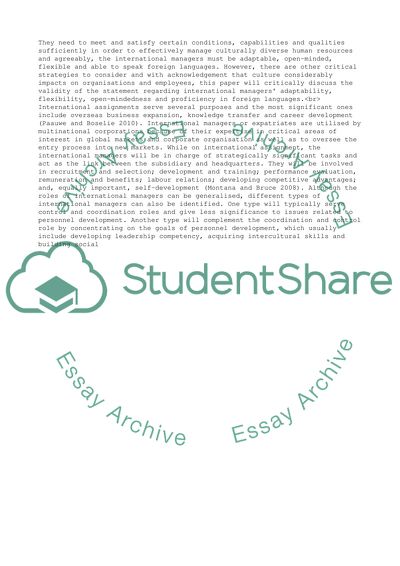Cite this document
(The Statement Regarding International Managers Adaptability Essay Example | Topics and Well Written Essays - 2750 words - 8, n.d.)
The Statement Regarding International Managers Adaptability Essay Example | Topics and Well Written Essays - 2750 words - 8. https://studentshare.org/business/1680629-the-statement-regarding-international-managers-adaptability
The Statement Regarding International Managers Adaptability Essay Example | Topics and Well Written Essays - 2750 words - 8. https://studentshare.org/business/1680629-the-statement-regarding-international-managers-adaptability
(The Statement Regarding International Managers Adaptability Essay Example | Topics and Well Written Essays - 2750 Words - 8)
The Statement Regarding International Managers Adaptability Essay Example | Topics and Well Written Essays - 2750 Words - 8. https://studentshare.org/business/1680629-the-statement-regarding-international-managers-adaptability.
The Statement Regarding International Managers Adaptability Essay Example | Topics and Well Written Essays - 2750 Words - 8. https://studentshare.org/business/1680629-the-statement-regarding-international-managers-adaptability.
“The Statement Regarding International Managers Adaptability Essay Example | Topics and Well Written Essays - 2750 Words - 8”. https://studentshare.org/business/1680629-the-statement-regarding-international-managers-adaptability.


